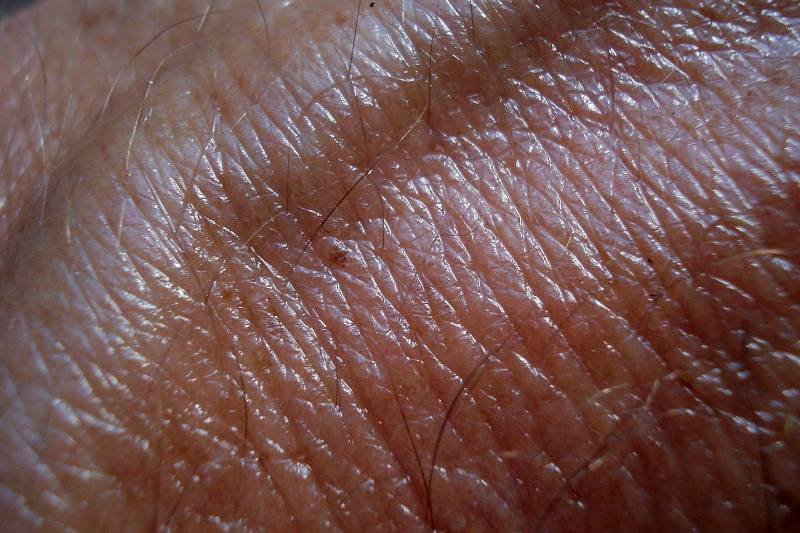A groundbreaking clinical trial, published in the journal Nature Medicine, has demonstrated the safety and potential of fecal microbiota transplants (FMT) from healthy donors in improving the response to immunotherapy in patients with advanced melanoma. The world-first study, conducted by Lawson Health Research Institute, the Centre hospitalier de l’Université de Montréal (CHUM), and the Jewish General Hospital (JGH), sheds light on the role of the human microbiome in cancer treatment.
Immunotherapy drugs are designed to activate a person’s immune system to target and eliminate cancer cells. While these drugs have shown significant survival benefits for melanoma patients, they are effective in only 40 to 50 percent of cases. Early research has suggested that the composition of the human microbiome may influence the response to immunotherapy.
The study aimed to enhance the health of melanoma patients’ microbiome through fecal transplants, which involve collecting stool from a healthy donor, screening and preparing it in a lab, and transplanting it into the patient’s gut. The goal is to introduce a diverse range of beneficial bacteria into the patient’s microbiome.
Dr. John Lenehan, Medical Oncologist at London Health Sciences Centre’s (LHSC) London Regional Cancer Program (LRCP), Associate Scientist at Lawson, and Associate Professor at Western University’s Schulich School of Medicine & Dentistry, explains the rationale behind the study: “The connection between the microbiome, the immune system, and cancer treatment is a growing field in science. This study aimed to harness microbes to improve outcomes for patients with melanoma.”
The phase I trial enrolled 20 melanoma patients from LHSC, CHUM, and JGH. Patients received approximately 40 fecal transplant capsules orally in a single session, one week before starting immunotherapy treatment.
The study’s primary objective, to assess the safety of combining fecal transplants with immunotherapy, was met, as the treatment was deemed safe for patients. Furthermore, the study observed a clinical response to the combination treatment in 65 percent of patients who retained the donor’s microbiome. Five patients experienced adverse events associated with immunotherapy and discontinued treatment.
Dr. Bertrand Routy, Oncologist and Director of CHUM’s Microbiome Center, sees the potential impact of the study: “We have reached a plateau in treating melanoma with immunotherapy, but the microbiome has the potential to be a paradigm shift. This study puts Canada at the forefront of microbiome research by showing we can safely improve patients’ response to immunotherapy through fecal transplants.”
Dr. Wilson H. Miller Jr., from JGH and McGill University, acknowledges the significance of targeting the microbiome in immunotherapy: “These exciting results add to a rapidly growing list of publications suggesting that targeting the microbiome may provide a major advance in the use of immunotherapy for our patients with cancer.”
The study stands out due to its utilization of fecal transplants in capsule form for cancer patients, a technique pioneered by Dr. Michael Silverman, Lawson Scientist, Chair of Infectious Diseases at Schulich Medicine, and Medical Director of the Infectious Disease Care Program at St. Joseph’s Health Care London. Dr. Silverman explains the success of this approach: “Our group has been doing fecal transplants for 20 years, initially finding success treating C. difficile infections. This has enabled us to refine our methods and provide an exceptionally high rate of the donor microbes surviving in the recipient’s gut with just a single dose. Our data suggests that at least some of the success we are seeing in melanoma patients is related to the efficacy of the capsules.”
Building upon this pioneering work, the research team has initiated a larger phase II trial involving multiple centers in Ontario and Quebec. Lawson researchers are also exploring the potential of fecal transplants in treating other cancers, such as renal cell carcinoma, pancreatic cancer, and lung cancer, as well as conditions like HIV and rheumatoid arthritis.
This research has received support from various organizations, including the London Health Sciences Foundation, Western University, the Lotte and John Hecht Memorial Foundation, the JGH Foundation, the Canadian Cancer Society’s Impact Grant program, and The Terry Fox Foundation.
If our reporting has informed or inspired you, please consider making a donation. Every contribution, no matter the size, empowers us to continue delivering accurate, engaging, and trustworthy science and medical news. Independent journalism requires time, effort, and resources—your support ensures we can keep uncovering the stories that matter most to you.
Join us in making knowledge accessible and impactful. Thank you for standing with us!

